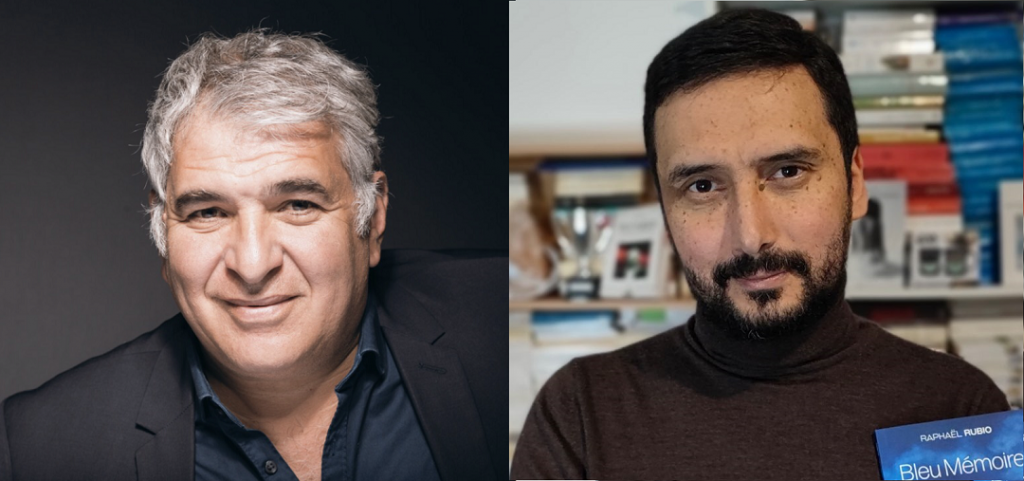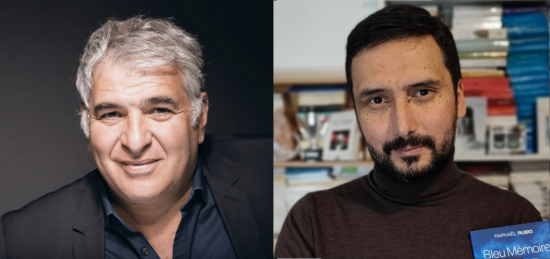
Tribune by Christophe Madroli and Raphael Rubio: “The sea, a new political space.”
- Christophe Madrul and Rafael Rubio © DRX
For example, the attraction of the sea was stimulated by the need to find other raw materials in addition to alternative energy sources. As the Earth’s resources are depleted, the sea and blue growth prospects attract. Moreover, the numbers matter. 90% of hydrocarbons and 84% of trace minerals lie on the ocean floor. Scientists know only 10% of the plant and animal species that live in the sea. Maps of the surface of the Moon and the planet Mars, according to the accepted formula, are probably better than maps of the sea floor. The sea remains, after all, the root and future of humanity.
Thus, the Euro-Mediterranean Blue Growth Exhibition (Euromaritime 2022) which opens on Tuesday 28 June in Marseille will have to face many challenges. The stakes are high. About 260 exhibitors, 30 conferences, 17 start-ups and about 950 BtoB meetings, these are topics such as port multimodality, logistics, security, support for activities at sea or even vital resources, hydrography and the necessity of decontamination, which will be a head-to-head address.
If the richness of the discussions and the quality of the speakers are part of the program’s strengths, its stake is much broader: to establish the sea, and especially the Mediterranean, in a new political space.
The purely technical management of environmental and marine resources, as we have emphasized, is largely insufficient. Even worse, it turned out to be a conflict, and even aggressiveness. The zoning of the exclusive marine zones, for example, has long been in question, particularly in the eastern Mediterranean. Moreover, the issues of decarbonization, environmental restrictions on construction sites, electricity on the quay, and hydrogen for professionals in shipping, transport and tourism cannot be resolved without a political perspective.
Let’s be clear, we are talking here about revitalizing the concept of politics. In fact, the past 35 years have been marked by special management of marine and environmental issues. Its name, Judgment, is inspired by the Anglo-Saxon model. We now know that its principle is based on an illusion: the principle of freeing political decision in favor of pure knowledge, experience and technology.
However, recent climate and geostrategic issues have rendered simple governance obsolete. It is time to rehabilitate politics.
Let us recall how much the invention of politics depended on the sea, since ancient Athens, a thalassocratic power, owed its worldview to its openness and maritime trade. From the beginning, the sea involves a plurality of encounters, discussion, collective decision-making, and joint management of resources.
How, at present, for example, can the issue of tourism, passenger transport and cruises be considered without a common and rational plan?
Along the same lines, how can you, without planning, think about logistical difficulties, the issue of flows or even the dangers of the Internet?
So the sea calls for a new way of envisioning politics: if planning is necessary, it cannot operate without the involvement of the largest number of actors: companies, professionals, investors, local authorities, citizens, associations, states and regions, all must return to the path of political and democratic debate .
As such, the Parliament of the Sea, able to establish itself as a source of suggestions and innovations would be an interesting idea. Finally, since there is no policy without education, the creation of the Lycée and Campus de la Mer, here in Marseille, would give our city a major international influence.
” Together and collectively we will address the issues and challenges of tomorrow, be they environmental, social or economic. Frederic Moncani de Saint-Aignan said.
We believe that this collective ambition will be closely political.

“Organizer. Social media geek. General communicator. Bacon scholar. Proud pop culture trailblazer.”

